Ministry of Natural Resources and Environment still wants to stop using the surplus method
As reported by Thanh Nien , recently, the Ministry of Natural Resources and Environment has sent a draft Decree amending and supplementing a number of articles of Decree No. 44/2014/ND-CP dated May 15, 2014 of the Government regulating land prices (draft Decree 44) to the Ministry of Justice for appraisal before submitting it to the Government.
Notably, the Ministry of Natural Resources and Environment proposed in draft Decree 44 not to use the surplus method to value land.
However, at the workshop this afternoon, most experts said that it is necessary to retain the surplus method in land valuation.
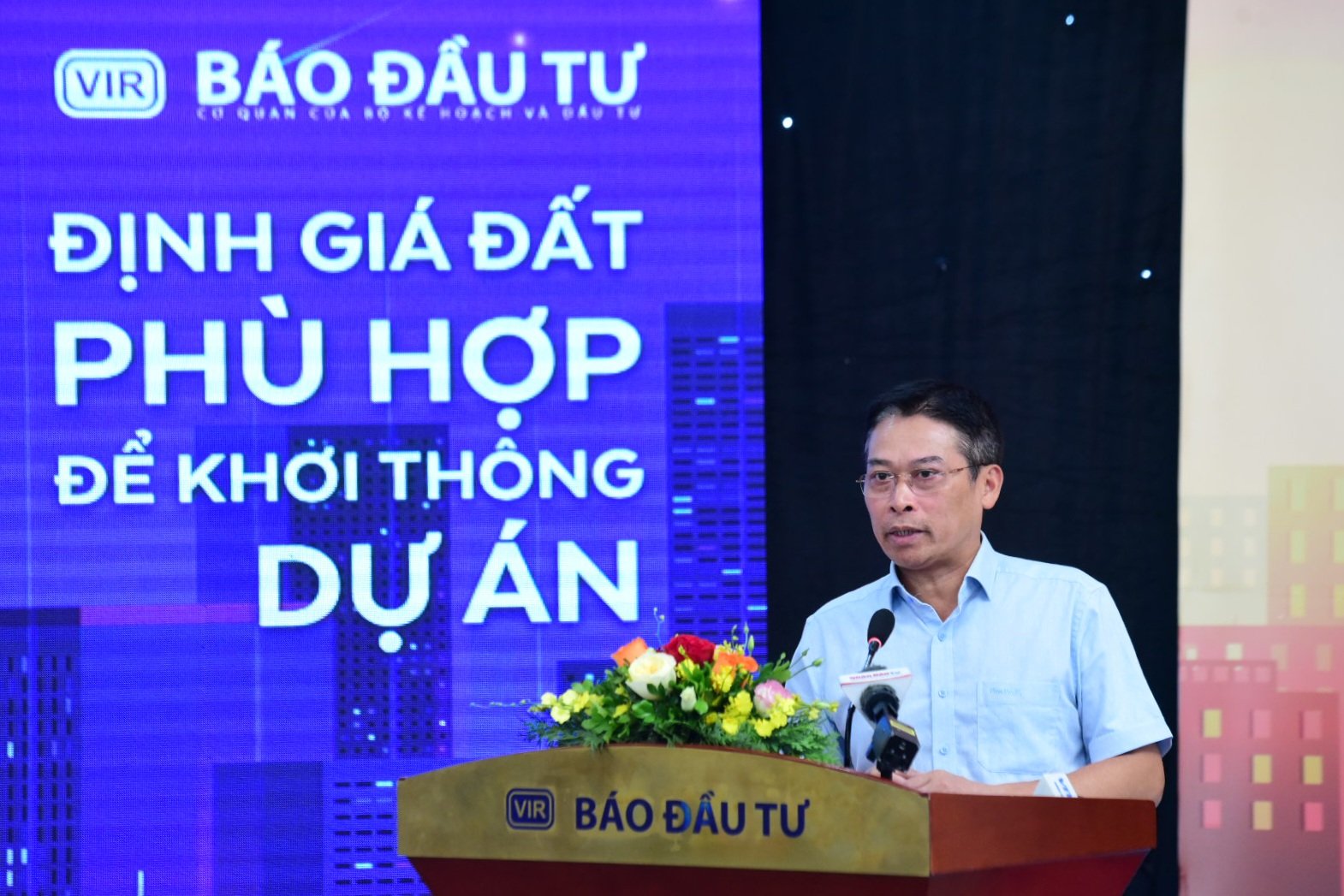
Mr. Dao Trung Chinh shared at the workshop
Speaking at the workshop, Mr. Dao Trung Chinh, Director of the Department of Planning and Land Resources Development (Ministry of Natural Resources and Environment), raised many aspects and cited reasons why the ministry proposed to abandon the surplus method when valuing land.
The viewpoint of the representative of the Ministry of Natural Resources and Environment at the workshop remained the same as when answering an interview with Thanh Nien Newspaper in the article Will the Government decide to keep or abandon the surplus method? published on July 26.
According to Mr. Chinh, no one can deny the superiority of the surplus method. However, in the context of the input parameters when applying this method in land valuation in our country, it is not standard, leading to inaccurate results.
"I have participated in land valuation in a number of cases recently and found that appraisers are afraid of legal risks when applying the surplus method. That is one of the reasons why the land valuation process has been slow in recent times," Mr. Chinh shared at the workshop.
Mr. Chinh added that if the Government decides to retain the surplus method, it is necessary to research and review to develop input standards for the parameters and indexes of this method. Only with standard input will the results be accurate, the appraisers will be confident in signing, and the deadlock in land valuation, especially for projects, can be resolved.
"Abandoning the surplus method is a step backward in land valuation"
After the sharing of the representative of the Ministry of Natural Resources and Environment, many experts and enterprises directly or sent papers expressing their views on the need to retain the surplus method in land valuation; if removed, it may cause more difficulties and congestion, slow land valuation, and the real estate market will continue to have a prolonged shortage of supply.
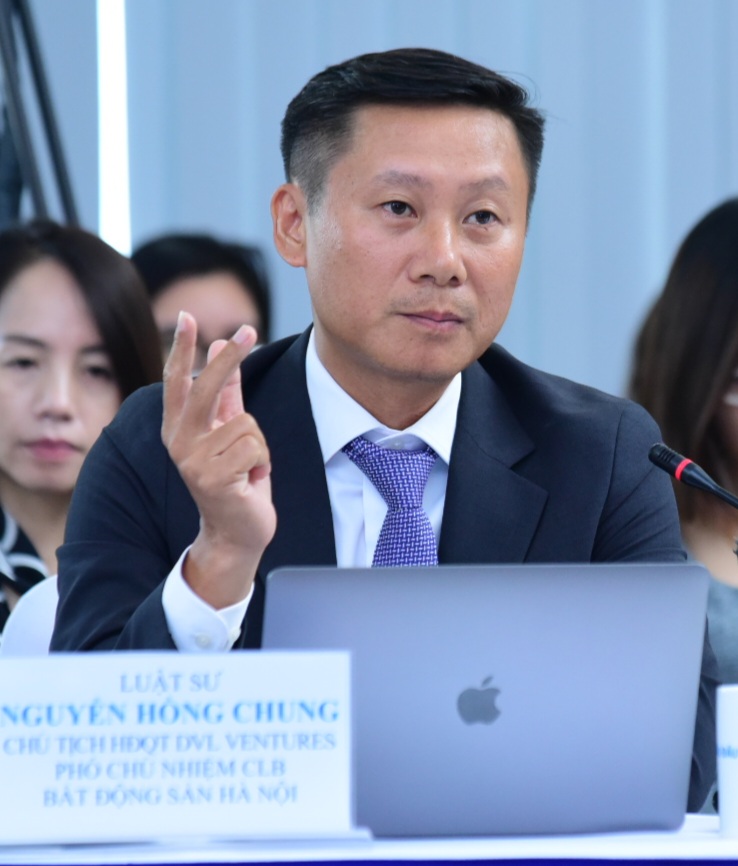
Lawyer Nguyen Hong Chung, Vice President of Hanoi Real Estate Club, expressed the view that the surplus method should be retained.
Lawyer Nguyen Hong Chung, Vice President of Hanoi Real Estate Club, said that the surplus method is a method of determining land price based on the purpose of use with potential for future development, not based on the current purpose of use like the comparison method or income method.
The surplus method reflects the market value of the land to be appraised, including the following factors: land use purpose; land use term; construction density; building height; land use coefficient; reflecting the cash flow value in investment, production and business with high practicality.
"The surplus method clearly reflects the financial nature of a real estate project: what are the costs, revenues, and profits, very scientifically and objectively. This method clearly reflects the way to exploit, allocate, and share land rent differences. This is also a modern real estate valuation method, according to international practice.
The Ministry of Natural Resources and Environment's claim that due to the lack of database for valuation, valuation must be based on hypothetical factors, lack of accuracy, so abandoning this method, in my opinion, is not convincing. If the problem is the lack of database, the solution must be to create a quality, reliable database source, instead of abandoning the surplus method (destroying the production machine). Therefore, if abandoning the surplus method becomes a reality, it will be a step backward in land valuation work," said Mr. Chung.
At the same time, according to lawyer Chung, draft Decree 44 only has 3 valuation methods: comparison, income and land price adjustment coefficient, which are not enough to replace the surplus method when valuing investment projects using land: urban areas, mixed commercial service areas, etc.
If the surplus method is abandoned, it will be difficult to determine the value of land use rights that investors must pay for projects formed in the future when all social and technical infrastructure works have not been completed. Investors will not be able to calculate the financial problem when implementing real estate projects...
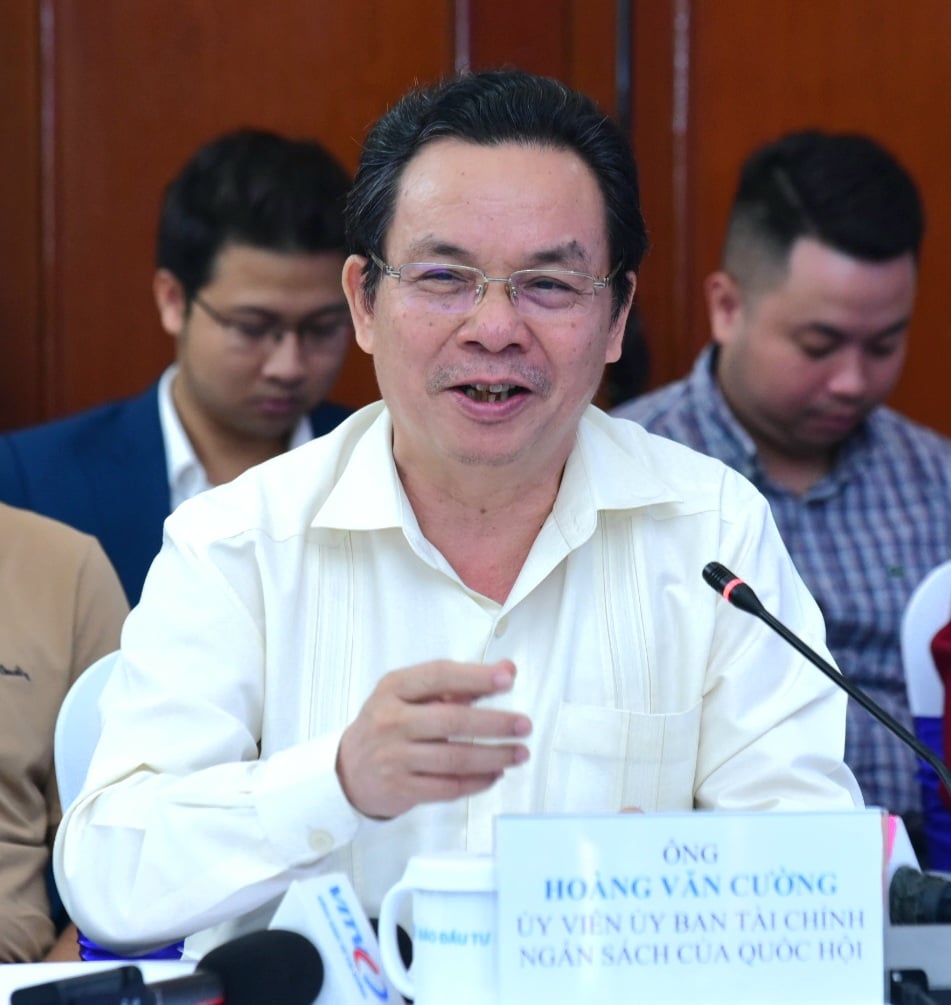
Professor Hoang Van Cuong, member of the National Assembly's Finance and Budget Committee, shares the advantages and disadvantages of the surplus method.
It is important to standardize the input parameters of each valuation method.
Professor Hoang Van Cuong, member of the National Assembly's Finance and Budget Committee, said that in recent years, many projects have not been approved. One of the reasons is that the land price cannot be determined so that local authorities can decide to collect money and investors can pay money to make a decision to allocate land. The inaccurate land valuation can be subjective or objective because the regulations on valuation are not specific and clear.
Professor Cuong said that in the world, there are 4 popular methods: direct comparison, deduction, income, surplus. In Vietnam, there are currently 4 of these methods and an additional method of land price adjustment coefficient is prescribed.
Analyzing the land price adjustment coefficient method, one of the three methods proposed by the Ministry of Natural Resources and Environment in the draft Decree 44, Professor Cuong said that this method will be very safe for valuers because the State stipulates it like that, just take the price list multiplied by the coefficient to determine the land price.
"However, this price is not accurate. Two adjacent plots of land with different shapes have very different prices, not to mention the direction of the land, the land position, the view... The land price adjustment coefficient method is only suitable for management agencies rather than for people and businesses," Mr. Cuong acknowledged.
Mr. Cuong analyzed the advantages and disadvantages of land valuation methods: deduction, comparison, and income before concluding with regret: "In the world, to value many new projects, people use the surplus method, because there is nothing to compare with new projects. However, the draft Decree 44 abandons this method...".

Many experts, lawyers, businesses... attending the workshop expressed their support for retaining the surplus method in land valuation.
However, Mr. Cuong also admitted that the surplus method has many limitations. Specifically, if the calculation factor of the land area to be valued is not standard, meaning the input is not standard, it will lead to inaccurate output results.
Many countries in the world commonly use the surplus method and do not suffer losses because there is no over-selling and tax evasion. The business and legal environment of most of those countries are transparent and disciplined. In our country, many parameters and market indexes participating in the surplus method when valuing land are not standard, so the results are difficult to be accurate, there are risks for the appraiser...
Mr. Nguyen Quoc Hiep, Chairman of the Vietnam Association of Construction Contractors, expressed that each valuation method has its own advantages and disadvantages. However, in the current context of our country, it is necessary to maintain the five current land valuation methods. The important thing is to standardize the input parameters of each method to minimize errors in land valuation as well as speed up the appraisal process. Only then can the deadlock for real estate projects be cleared, and the market will soon have new supply.
Despite insisting on maintaining the surplus method in land valuation, most experts and business leaders attending the workshop did not thoroughly present a plan to speed up the land valuation process and clear the supply bottleneck for the real estate market.
Source link


![[Photo] Prime Minister Pham Minh Chinh receives United Nations Secretary-General Antonio Guterres](https://vphoto.vietnam.vn/thumb/1200x675/vietnam/resource/IMAGE/2025/10/25/1761390212729_dsc-1484-jpg.webp)
![[Photo] National Assembly Chairman Tran Thanh Man receives United Nations Secretary-General Antonio Guterres](https://vphoto.vietnam.vn/thumb/1200x675/vietnam/resource/IMAGE/2025/10/25/1761390815792_ctqh-jpg.webp)
![[Photo] Prime Minister Pham Minh Chinh and United Nations Secretary-General Antonio Guterres attend the Press Conference of the Hanoi Convention Signing Ceremony](https://vphoto.vietnam.vn/thumb/1200x675/vietnam/resource/IMAGE/2025/10/25/1761391413866_conguoctt-jpg.webp)



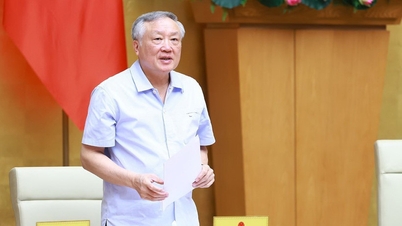





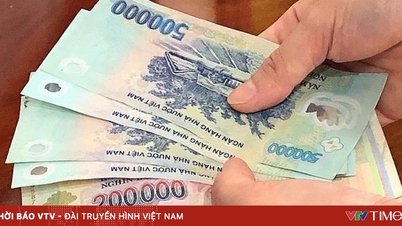
![[Podcast] Ministry of Home Affairs proposes to increase regional minimum wage by 7.2% from January 1, 2026](https://vphoto.vietnam.vn/thumb/402x226/vietnam/resource/IMAGE/2025/9/29/a87e9331af174f469ee0d32eb39b1dd0)





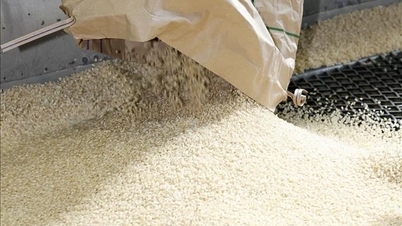
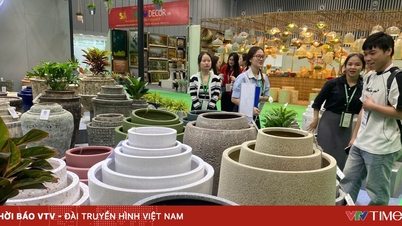


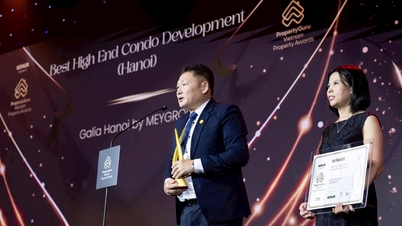






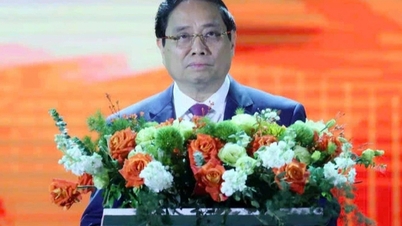
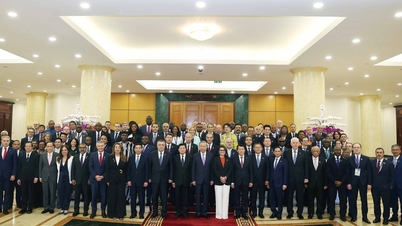




![[Photo] General Secretary To Lam meets with General Secretary and President of Laos Thongloun Sisoulith](https://vphoto.vietnam.vn/thumb/1200x675/vietnam/resource/IMAGE/2025/10/25/1761380913135_a1-bnd-4751-1374-7632-jpg.webp)


































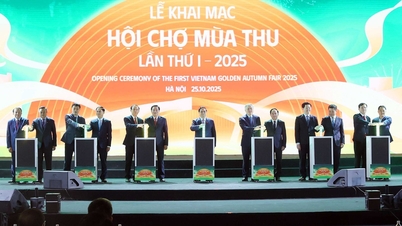
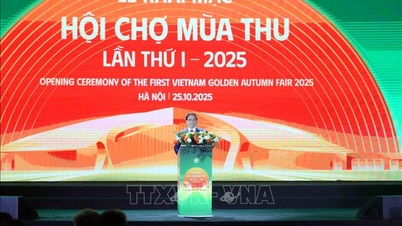

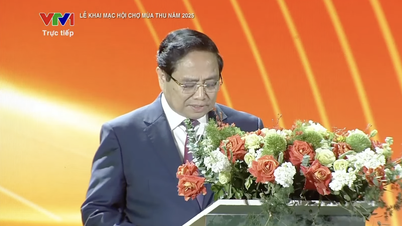









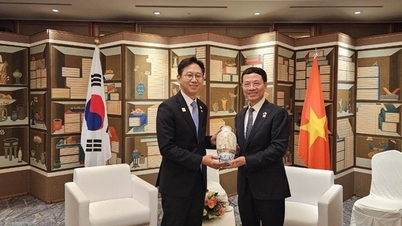
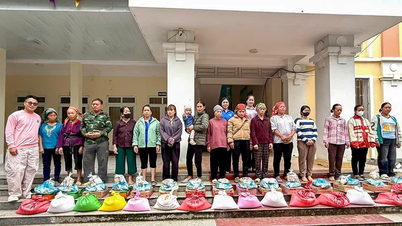







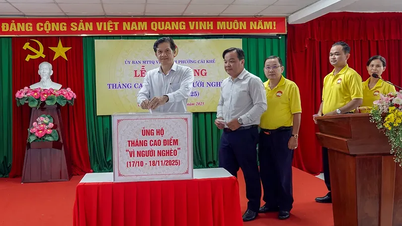















Comment (0)